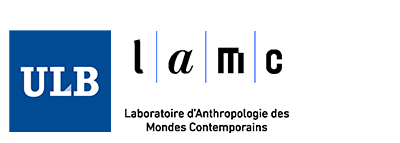Dans la même rubrique
-
Partager cette page
Moisés KOPPER
Membre associé
 |
|
Bio
Moisés Kopper earned his Ph.D., and Master’s in Social Anthropology from the Federal University of Rio Grande do Sul (UFRGS), Brazil. He carried out postdoctoral research at the Max-Planck-Institute for the Study of Societies, Germany (2017-2019), and at the Center for Metropolitan Studies/CEBRAP/USP (São Paulo, 2016-2017). He also served as a Lecturer in the Department of Social and Cultural Anthropology, University of Cologne, and as a research fellow at Princeton University (USA, 2014-2015) and the Universidad Nacional de San Martín (Argentina, 2011).
In January 2021, Kopper will be joining the Laboratoire d’Anthropologie des Mondes Contemporains as a postdoctoral researcher with an Individual Fellowship co-funded between the Université Libre de Bruxelles and ERC’s Marie Skłodowska-Curie actions (H2020). His upcoming research project focuses on the techno-politics and infrastructures of information underpinning Brazil’s recent cycle of economic development, from inclusionary growth towards far-right populist politics. The project builds on the premise that modern democracies wield biopolitical power through the production and stewardship of quantified information, including censuses, household surveys, stylized indicators, market research, “fake news,” and policymaking. The production, collection, and circulation—within scientific, governmental, and marketing milieus—of inequality measures both reflects and generates competing visions of national futures. Drawing on first-hand interviews with world-leading economists, political marketers, government officials, and World Bank representatives, as well as archival research on unexplored official records, the project tells the story, all-too-common in much of the Global South, of how a statistically-driven rendition of inequality—as appraised since the 1970s through transnationally interconnected development agencies—came to embody the prospects of a nation ever grappling with the promises of modern equality.
Kopper recently finalized his second book manuscript, Architectures of Hope: Infrastructural Citizenship and Class Mobility in Brazil’s Public Housing, which trails the role of material hope in everyday forms of poverty governance in post-neoliberal Brazil. Based on five years of ethnographic research, the book chronicles the long-term effects of participation and consumption in the lives of first-time homeowners. Following the contingent implementation of housing infrastructures, it restores the cartographies of hope through which beneficiaries of public policies envision the future, remap the built environment, and engender new forms of political and economic citizenship.
Domaines d'intérêt
Ethnography and Social Theory; Urban Anthropology; Political and Economic Anthropology; Information, Economic Expertise, and Algorithmic Governance; Class, Material Hope and Social Mobility; Infrastructures and Wellbeing; Neoliberalism, Statecraft and Development; Popular Culture; City as Home; Latin American Societies; Brazil.
Présentation des recherches
Kopper’s research has been supported by grants from the Humboldt Foundation (Germany), the Council for Scientific and Technological Development (CNPq, Brazil), the Coordination for the Improvement of Higher Education Personnel (CAPES, Brazil), and the São Paulo Research Foundation (FAPESP, Brazil). He has published in scientific journals in the USA, France, Germany, Portugal, Brazil, and Argentina. His research and teaching interests include: Ethnography and Social Theory; Urban Anthropology; Political and Economic Anthropology; Information, Economic Expertise, and Algorithmic Governance; Class, Material Hope, and Social Mobility; Infrastructures and Wellbeing; Neoliberalism, Statecraft, and Development; Popular Culture; City as Home; Latin American Societies; Brazil.
Travaux sélectionnés
RECENT PUBLICATIONS
- “Measuring the Middle: Technopolitics and the Making of Brazil’s New Middle-Class.” History of Political Economy. Special Issue: “Measuring Matters: Histories of Assessing Inequality,” edited by Pedro Ramos Pinto and Poornima Paidipaty, 2020, 52(3): 561-588.
- “House-ing Urban Kin: Family Configurations, Household Economies, and Inequality in Brazil’s Public Housing.” Articulo, Special Issue: “Urban Kinships: Everyday Kinship and the Making of the City,” 2019, n. 20.
- “A Politics of Hope: The Making of Brazil’s post-neoliberal New Middle-Class.” MPIfG Discussion Paper, 2019, 19(7):1-26.
- “Porous Infrastructures and the Politics of Upward Mobility in Brazil’s Public Housing.” Economic Anthropology, 2019, 6(1):73-85.
- “Technologies and Subjects of Participation: The Political Mobilization of Street Vendors in Porto Alegre, Brazil.” Etnográfica, 2019, 23(1):87-108.
- “Public Policies and their Afterlives: Worthiness and Housing Citizenship in Brazil.” Revista Brasileira de Ciências Sociais, 2019, 34(99):1-24.
